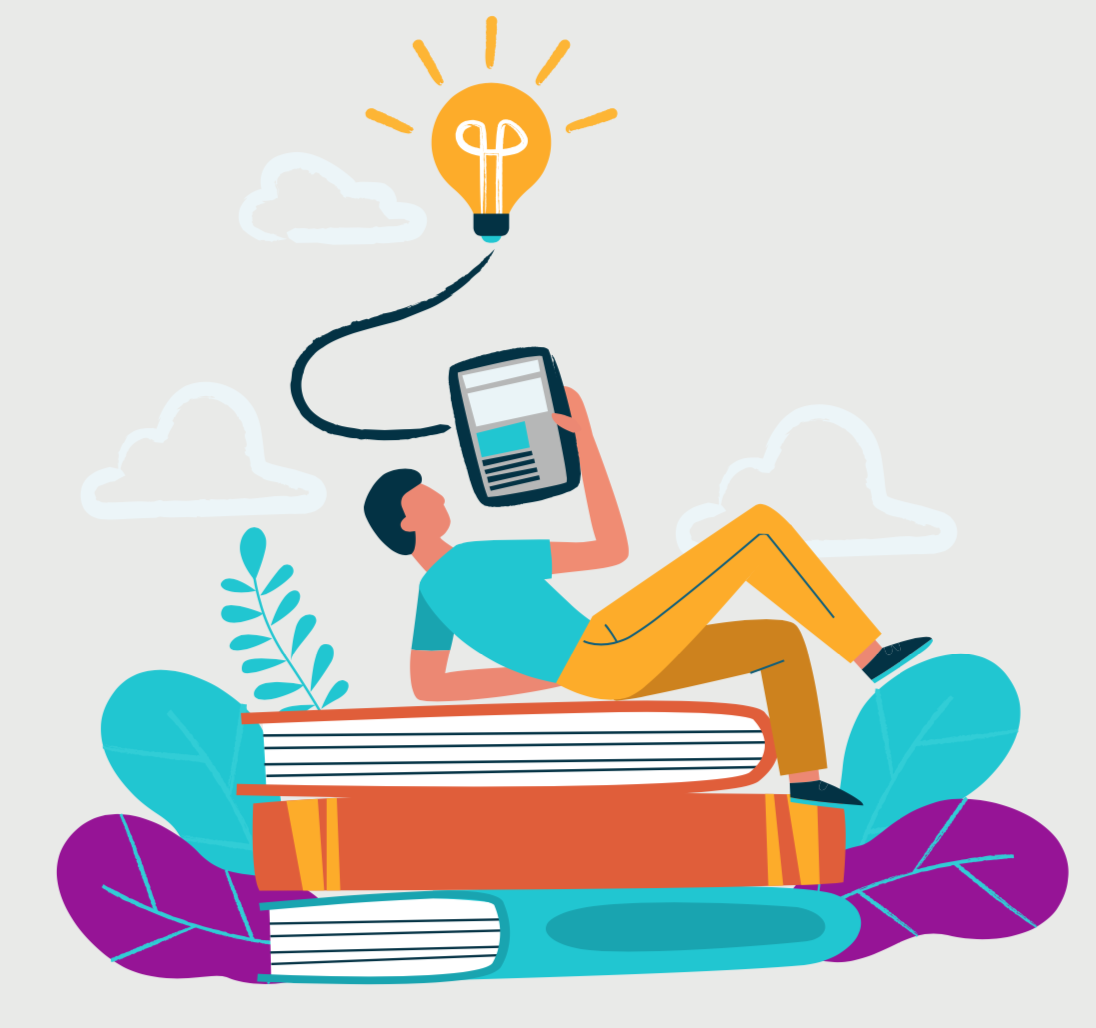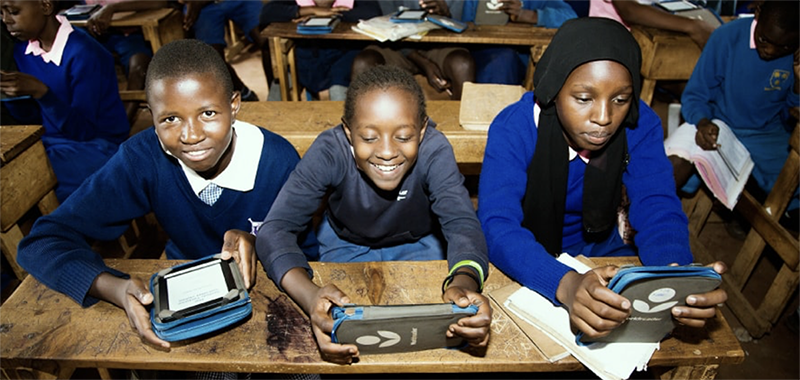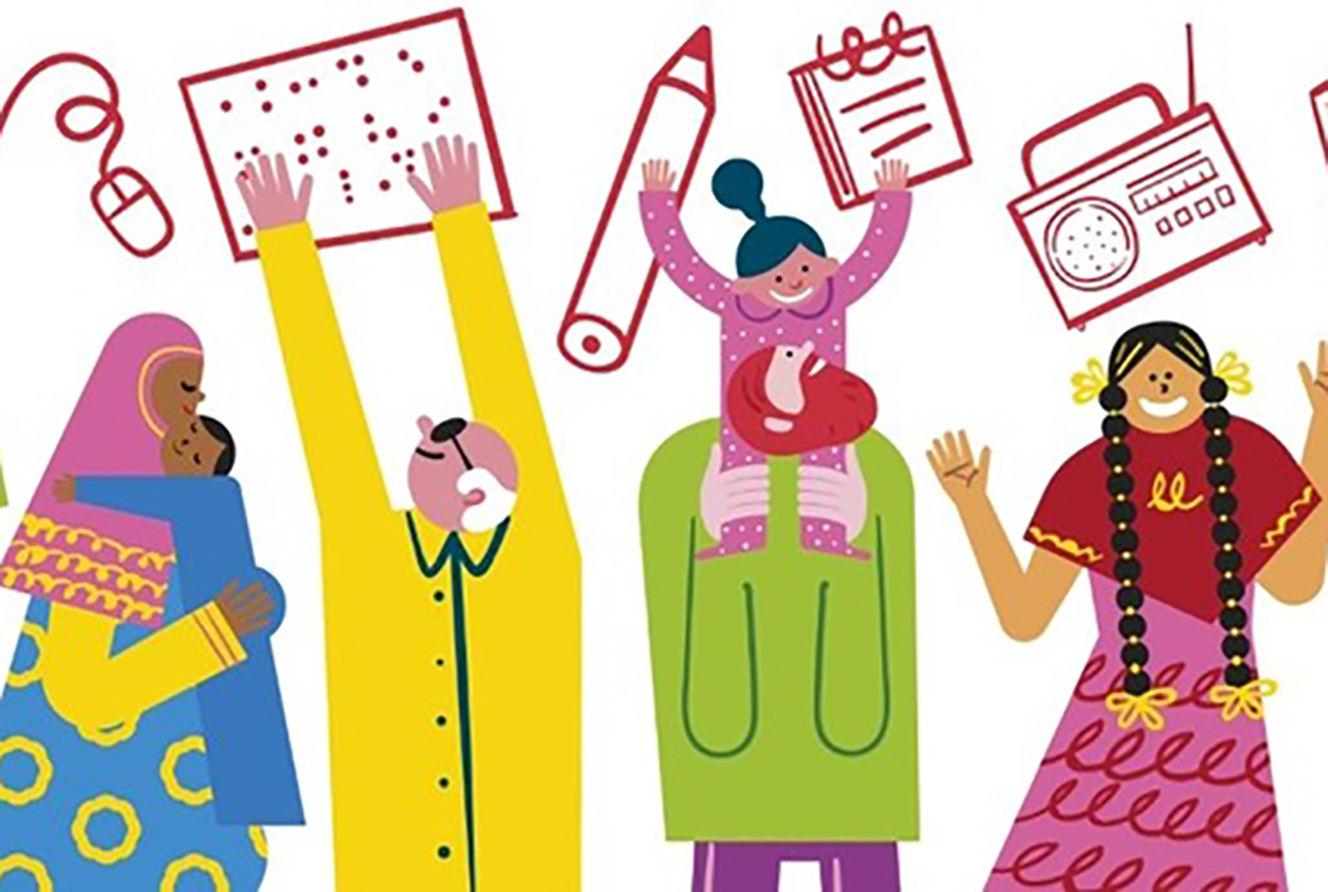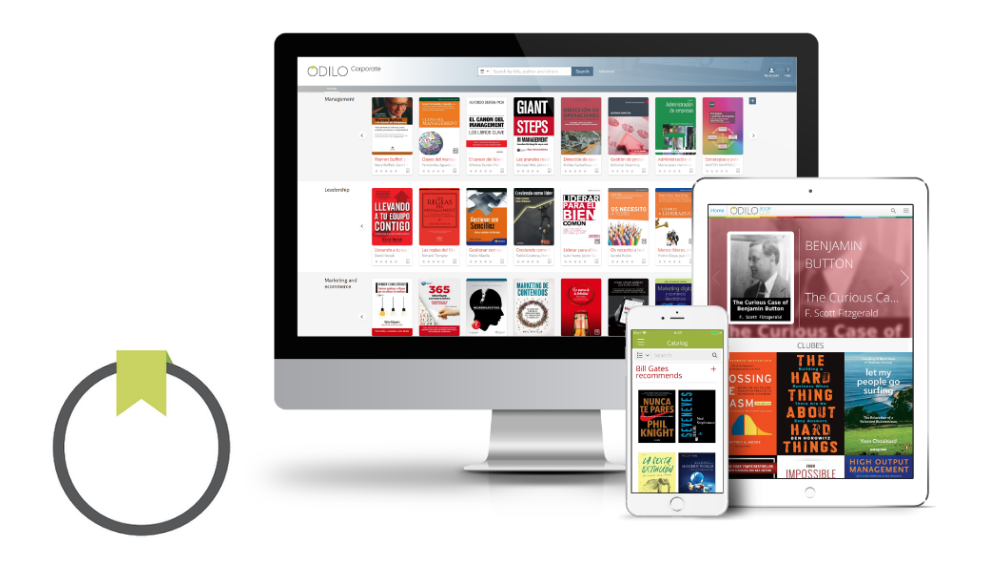Think for a second: in the last two hours, how many times have you used your literacy skills? To read a notification from your neighbours, to identify a street, to read your text messages and emails or a medication leaflet…
If, during the 20th century, reading and writing became an essential skill for social and cultural promotion, in the 21st century it has become an indispensable skill for our everyday life. Independently of cultures, countries or socioeconomic levels. In fact, UNESCO has incorporated the digital component in its definition of literacy: “a means of identifying, understanding, interpreting, creating, and communicating in an increasingly digitised, text-based, information-rich and rapidly changing world”.
However, today there are at least 773 million young people and adults who cannot read and write, of which 63% are women. In addition, 250 million children fail to acquire basic literacy skills. In 2019, the World Bank used the term “Learning Poverty” to name a terrible reality: 53% of 10-year-olds in low- and middle-income countries cannot read or comprehend a short (age-appropriate) text, a figure that rises to 80% in the poorest countries.
These data critically threaten the projected achievement of the SDGs, because many of them directly depend on number 4, Quality Education. The good news is that new technologies, which contribute to democratise knowledge, are part of the solution. A digital education proposal on the field of literacy skills can facilitate access to resources, to both contents and reading plans, thus strengthening the teaching and educational personalisation processes.
If in the 20th century literacy became an essential skill for the social and cultural advancement of people, in the 21st century it has become an essential skill for everyday life.
One of the key aspects in the implementation of digital proposals for the acquirement of literary skills is the possibility of educational personalisation of the learning process. This is what All Children Reading highlights in its report Technology-Based Innovations to Improve Early Grade Reading Outcomes in Developing Countries. When using technology, teachers give students access to proper and levelled reading materials and the ability to be autonomous in their learning, which is especially useful in contexts where teachers face an abysmal diversity in educational levels, a situation generated due to the high levels of school dropout rates and the late access to the educational system.
For all these reasons, the new virtual environments have the potential to generate a scalable and repeatable revolution in the achievement of this basic central competence, contributing to the reduction of these terrible statistics that diminish the possibilities of development and social and labour inclusion of millions of children.
One of the crucial aspects in the implementation of digital proposals for the mastery of literacy is the possibilities of didactic personalisation of the learning process.
Become a techie of literary skills: 7 initiatives
Create a world of readers with Worldreader
Did you know that 61% of children in vulnerable communities do not own even one book? Worldreader aims to help these children who are unable to access reading. And it does so by combining its enormous digital library (with almost 6,000 books in 52 different languages), with technology (smartphones, tablets, e-readers…), through which it distributes its catalogue, and support programmes for teachers and parents. Since 2010, more than 21 million people have benefited from its readings in 100 different countries.
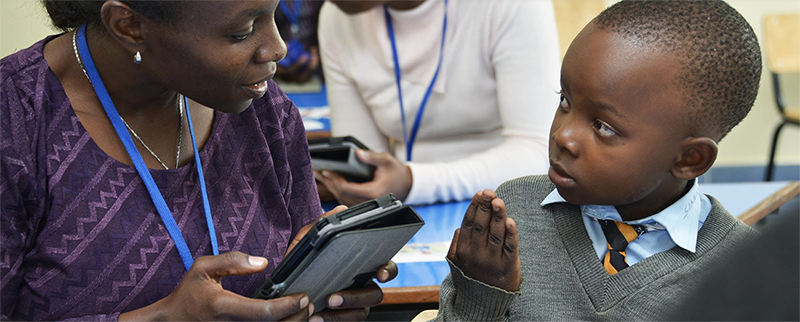
Tusome Early Grade Reading:Let’s read in Kiswahili
Tusome, “Let’s Read” in Kiswahili, is a model programme implemented by the Ministry of Education of the Government of Kenya and the US Agency for International Development, USAID. It focuses on improving teaching competences, improving access to appropriate educational resources, providing support and supervision in the teaching process, and improving collaboration with other actors in the learning process. It is implemented in almost 25,000 primary schools and benefits nearly 8 million children aged six to eight. In addition, it has a digital tool, Tangerine, to monitor, evaluate, and analyse the level of learning improvement during all phases of the project.
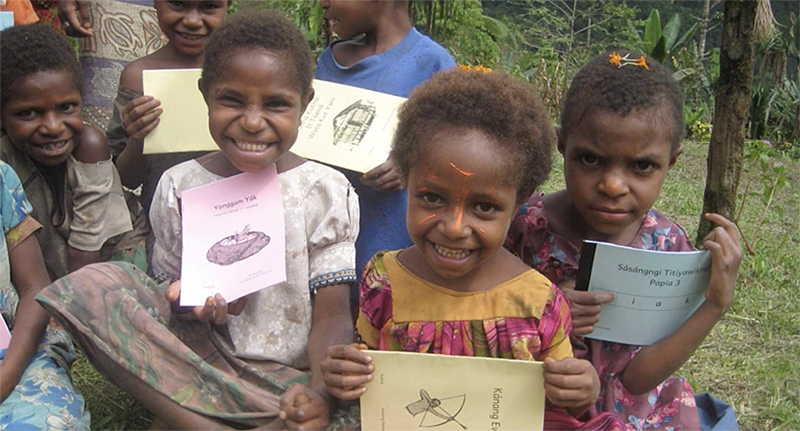
Bloom: a collaborative and digital bookshop
Literacy projects in local or minority languages are hampered by the lack of books translated into these languages to encourage the teaching and practice needed to develop real literacy. Bloom was born as a digital platform that allows people from all over the world to get involved in the creation of a large collection of books in indigenous languages. The platform has an editor that can be used to create a book or translate it, and also functions as a book repository where speakers of different languages can find books in their own language, and book creators will find pre-designed books to translate.
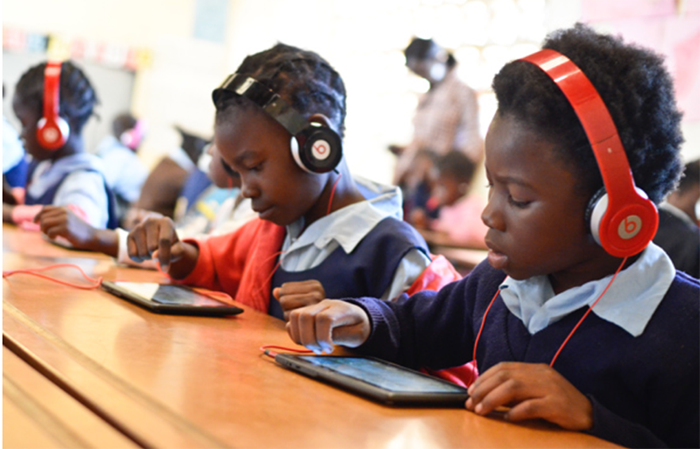
GraphoGame: game to teach reading in vulnerable environments
GraphoGame is a game-based technology tool that uses voice recognition and, through mobile devices, helps children learn to read and write. The trick is to keep the child engaged through playing long enough for learning to take place. This is achieved by the feedback provided by the tool. GraphoGame’s learning component has proven to be efficient in teaching children literacy skills in various languages and spellings. In fact, since its foundation, the programme, which was born in Finland, has been used in many countries and languages in Europe and, in 2012, it was extended to the African countries and languages of Kenya (Kiswahili and Kikuyu), Namibia (Afrikaans), Tanzania (Kiswahili) and Zambia (Nyanla and Tonga).
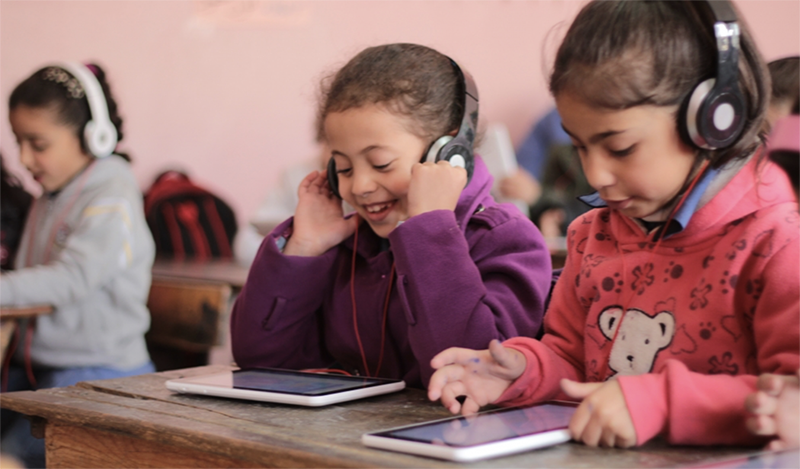
Little Thinking Minds: Reconnecting with Arabic
Seventeen years ago, Lamia Tabbaa and Rama Kayyali became concerned about the disconnection that young people in the Arab world were experiencing with their language and culture. To prevent this from happening to their own children, they started creating digital content in Arabic. They wanted the children to grow up speaking and loving this language, which they felt was being relegated to the background. Today, Little Thinking Minds is a leading educational technology company that creates advanced digital solutions and resources for Arabic literacy and has offices in Jordan, Arabia, and the United Arab Emirates. Its solutions have been proven to work in low-resource settings and also help refugee children with school support and reinforcement proposals.
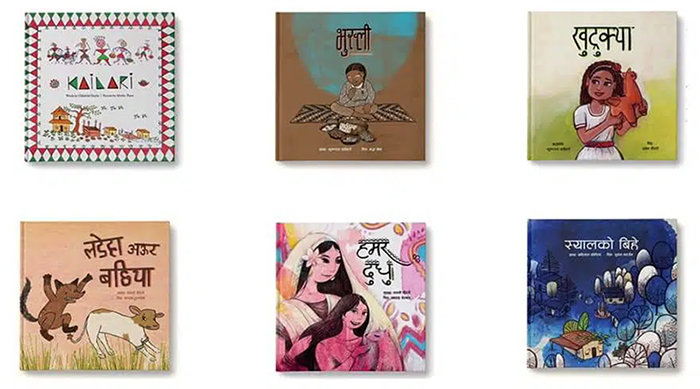
Let’s read Asia: a digital library for reading in up to 25 local languages
Children need books with characters, themes, and settings that reflect and affirm their lives, and provide them with opportunities to explore the world. Therefore, with the support of Asia Foundation, Let’s Read was born in the region, a programme aimed at creating a digital library of children’s books in the local language, with books that explore topics crucial to the development of children’s personalities and that can be found in up to 25 different languages. In addition, books can be downloaded or printed without internet access.
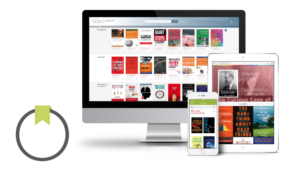
Odilo, digital reading that adapts to your level
Odilo is a digital learning management platform with more than three million titles available in various formats (eBooks, Audiobooks, magazines, press…) in 40 languages. It also uses artificial intelligence to measure and improve the learning process and reading comprehension. Thus, depending on the level, tastes and development of the student, we can recommend other titles to continue. This technology makes it easier for parents and teachers to monitor and support the children who use the platform. If you want to know more about Odilo, here we have a short interview with its CEO.
Keys to success
How to face the work in literary skills from a digital sphere with greater success guarantees? Previous initiatives and analysis give us some keys.
So, from a first level of analysis, essential factors can be identified for the successful design, development and implementation of literary skills strategies in vulnerability contexts:
- Curricular fitting: to properly integrate the reading contents on the syllabus of different regions where these strategies are implemented.
- Basic ICT literacy: to prioritise the basic training in the use of technological tools to create teaching sequences through technology.
- Context analysis: to make an exhaustive analysis of the environment before beginning, making sure that the basic infrastructure is adequate.
- Support of social agents: to count on the essential support of the local actors involved in the promotion of literary skills and social and educational intervention.
- Pretest of experiences: To make pretests previous to the implementation to maximise impact and to resolve possible obstacles before beginning.
A second level of analysis reveals that the optimal approach to digital literacy skills is based on a reading plan that generates an integral reading and writing experience:
- By giving teachers the necessary tools to monitor the students’ progress in the development of this competence, allowing agile and intuitive feedbacks.
- By offering students a personalised progress on their competence through a stimulating teaching sequence, allowing them to move forward at their own pace while solving different reading and writing challenges.
- By encouraging family participation in readers communities, where they not only accompany their loved ones, but also actively participate in shared or collaborative reading spaces.
- By including other agents that enrich the reading and writing opportunities, by either giving tools for a greater immersive experience or by leading reading challenges that stimulate the difficult task of promoting a love of reading.
Lastly, the fair access to reading and writing in the 21st century is a matter of social justice and human development. Technological solutions could open the door to a future where each person has the opportunity to develop these vital abilities, no matter their origins or context. By doing so, we are not only empowering people to face the challenges of modern life, but also building a more inclusive and fair society.



